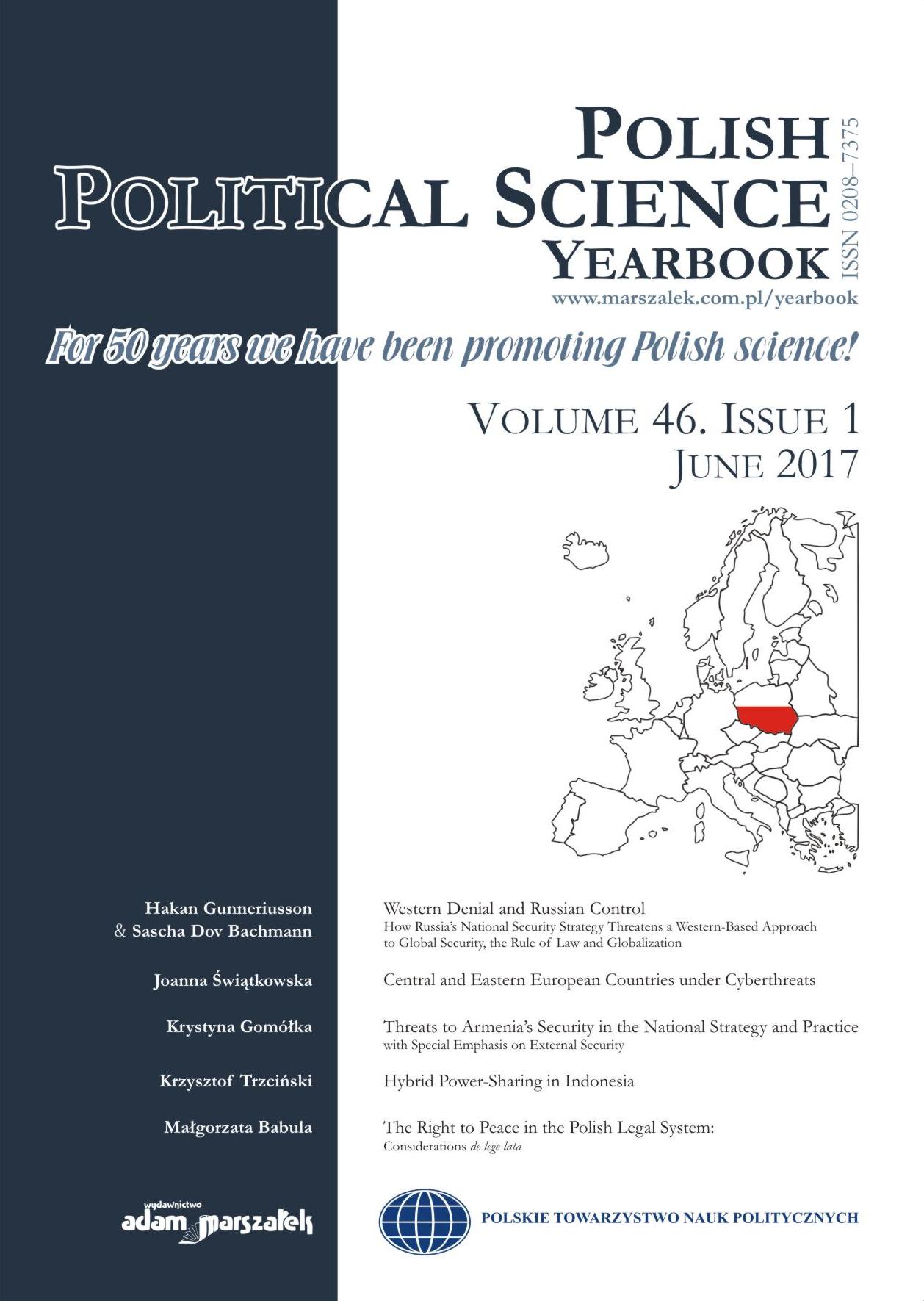Threats to Armenia’s Security in the National Strategy and Practice with Special Emphasis on External Security
Threats to Armenia’s Security in the National Strategy and Practice with Special Emphasis on External Security
Author(s): Krystyna GomółkaSubject(s): Governance, Public Administration, Government/Political systems, International relations/trade, Security and defense, Military policy, Developing nations, Politics and law, Politics and society, Inter-Ethnic Relations
Published by: Wydawnictwo Adam Marszałek
Keywords: Armenia; Caucasus; Nagorno-Karabakh; NATO;European Neighbourhood Policy;
Summary/Abstract: The national security strategy adopted in 2007 provided a detailed definition of security and identified its threats. The key threat to the Armenian state was considered to be the Nagorno-Karabakh conflict. The document indicated the Collective Security Treaty Organisation main guarantor of security, with Russia being Armenia’s main partner in bilateral relations. The second position in the strategy was assigned to cooperation with the NATO and the OSCE. One of the priorities identified was to intensify the economic and trade connections with the European Union and participation in the European Neighbourhood Policy as a step towards integration with European structures. As to bilateral relations, the most significant were Armenia’s contacts with Georgia and Iran. If we compare the assumptions of the strategy with the policy pursued by Armenia after 2007, it is clear that the measures taken are in line with the provisions of the document. By the end of 2016, the most serious threat to Armenia – the Nagorno-Karabakh issue – remained unresolved. Russia reinforced its position as Armenia’s strategic ally. The talks conducted between Armenia and the NATO are of little significance in view of the obligations assumed by Armenia. The same goes for the talks with the European Union after Armenia’s withdrawal from signing the association agreement, accession to the Eurasian Economic Union on 01 January 2015 and signing bilateral agreements with the Russian Federation.
Journal: Polish Political Science Yearbook
- Issue Year: 46/2017
- Issue No: 1
- Page Range: 74-90
- Page Count: 17
- Language: English

